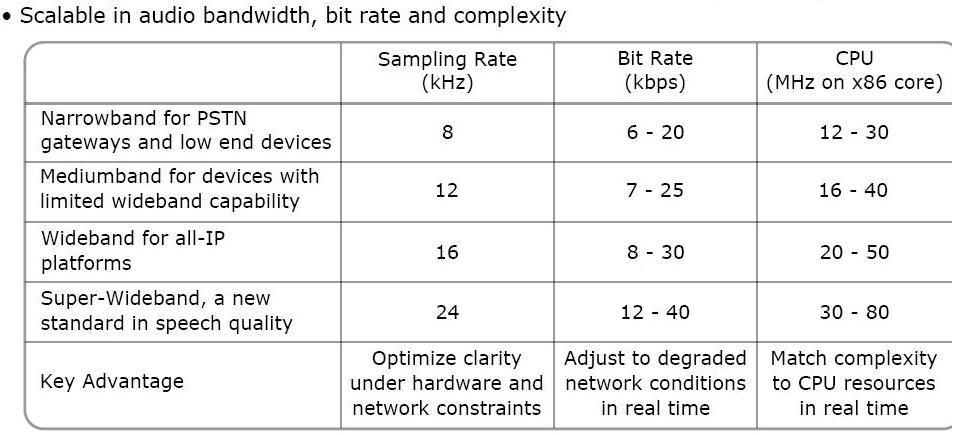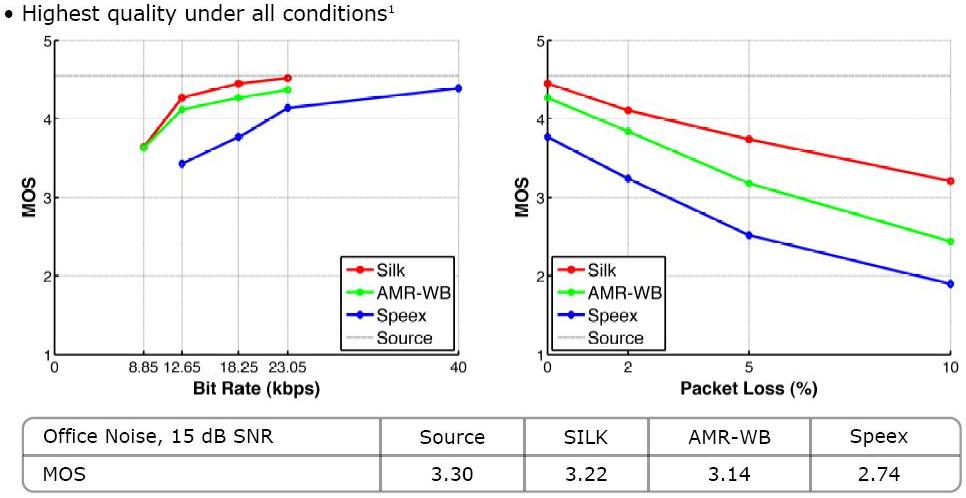对比一下这三种VOIP语音算法的特点:
1 参数与特征

2 SILK性能


关于iLBC和Speex的性能可以参考以前写的文章。
3 关于VOIP一些观点(仅代表个人观点)
1) Skype 辛苦三年开发的SILK为什么要开源?
第一,技术上,其实SILK用到了很多Royalty Free的算法部分,遵循开源的法则,取之于民,用之于民;
第二,商业上,Skype 根本不靠Codec赚钱,他本身最大的优势是网络条件做的比较好,这种环境下无论是SILK、iLBC还是G.729都可以达成比较不错的音质。
第三,口碑上,提高知名度,都已经把SILK定点好了,将来一定会有很多第三方去推广,广告、市场和口碑双赢;
2)iLBC一定就比Speex质量好吗?
根据目前的评测,当二者的编码速率差不多时,iLBC的质量要好于Speex,但是也有一些牛人认为iLBC这种每帧独立编码的思想其实是低效率的,通过增加编码冗余也可以达到相同的音质,意思是将CELP编码器增加一些前后冗余信息适当提高码率,也可以提高丢包情况下的抗干扰性,这个暂时还没有定论。
3)Speex 总感觉用的人少?
到底是Speex的推广差、维护差,还是音质差?虽然Speex的开发者出来解释了很多原因,可是目前好像用的第三方不是很多,同时我也感觉它的音质好像是有一点差。
4)有了SILK,还有人用iLBC吗?
SILK和iLBC来自两个不同公司skype and GIPS,个人感觉会同时存在。






















 2万+
2万+

 被折叠的 条评论
为什么被折叠?
被折叠的 条评论
为什么被折叠?








